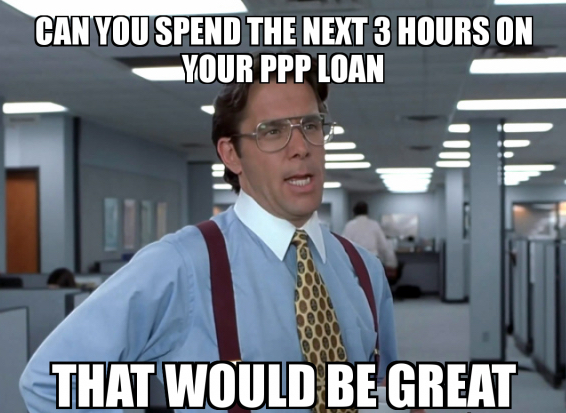I’ve been away from NYC the last couple of months as the pandemic unfolded but recently came back to a different experience. As I left the terminal at LaGuardia on a weekday morning there were no taxi lines and no one hustling me for a ride. It was strange but also somewhat peaceful. After a record setting 25 min into Manhattan I arrived downtown. I spent the afternoon walking around a few different neighborhoods to get a feel for how things had changed. Some shop owners told me business was slower for sure, and yet others said it’s about normal for August. Some said they had been able to negotiate rent concessions, others had not. People were in less of a rush and the tourists were gone. The parks were more alive than I’ve ever seen as people sat out on blankets with friends and their 4-legged friends.
It’s true innovation when a business builds something for themselves and then realizes there’s a potential application beyond internal needs.
Take, for example, a company like Apple that started predominantly as a hardware company making computers and other peripherals. Years later, when they created the App store it was originally conceptualized as a platform to deliver programs directly developed by Apple. But they realized that there was a much bigger opportunity here to create a marketplace model and the App store of today was born. In 2019, this line of Apple’s business contributed over a half a trillion dollars in billings and further reinforces the stickiness of their hardware business. If Apple had kept this ecosystem truly closed for fear of losing control, then their market penetration would be significantly less.
This is a period of immense uncertainty but also a time for great opportunity. Some of the most well known companies were created during past periods of volatility. Apple and Microsoft were born during the OPEC induced recession of the 1970’s. Netflix survived the Dot.com bubble and came out stronger than ever, and Airbnb was born during the 2007-2008 recession. Fast forward to today and there seems to be two schools of thought on investing during the current Covid-19 pandemic. Either it’s batten down the hatches and conserve cash or let’s use this as an opportunity to double down on our winners and also invest in other startups that are booming due to stay at home restrictions. As we’ve seen in the public markets there are multiple bulls out there in certain sectors and the same theme applies to venture.
Venture capitalist Marc Andreessen coined the term “Software is eating the world” nearly 10 years ago. His argument that software would be at the heart of every business moving forward could not have been more astute. For example, Amazon’s not a retailer; their primary capability is their software technology enabling sellers around the world to get their products to consumers. The same could be said for their AWS cloud business; again a software play. Uber, Google, Facebook, Netflix, and to some extent Apple’s app store business, are all examples of companies that are fundamentally software first. Interestingly, this same software has empowered a foundational shift in business model. It has enabled disintermediation. The complex network of intermediaries that have existed historically have been circumvented which has led to the world of everything being direct-to-consumer (D2C) or direct to source. Many think of D2C as mainly having an impact on consumer goods, but the theme permeates into numerous industries. Here are some examples:

You lease your car. You rent your apartment. You subscribe monthly to Netflix and you rent your clothes from Rent the Runway. But would you rent your furniture? There’s a slew of startups that are betting you will. Companies like Fernish, Feather, Oliver Space and CasaOne are a few that allow customers to rent their furniture and return when they no longer need. The concept isn’t new; legacy players such as Rent-a-Center ($RCII) and Aaron’s ($AAN) have been doing this for years. The difference now is that there hasn’t been an updated brand narrative. Rental furniture has historically been aimed at middle America, subprime borrowers as an alternative to those who weren’t candidates for financing. The loans were borderline usurious or prices were marked up to cover the credit risk.
As tech companies descended on Capitol Hill this week, the ongoing debate around antitrust continues. Startups have long lamented about the anticompetitive business practices adopted by the big 4: Apple, Amazon, Facebook and Google. If you build a business that relies on the Apple or Google app stores then you automatically know you’re going to pay a ~30% toll to access consumers. The debate has further been heightened as some startups like Classpass have been hit with this toll as they roll out virtual classes due to COVID. The founders argue that they are forgoing their normal take rate from providers (gym’s, etc) they work with during COVID so why is Apple charging them 30%. Apple is in an interesting situation, because if they make exceptions for one business, they need to make for others. They also would face potential legal battles from previous customers that did have to pay.

A recent report claims $TWTR is considering a subscription model to augment a significant decline in advertising revenue. This would be among the first of the big social media companies to consider this approach and I believe could lead to a reckoning in the industry. $FB is currently facing a backlash among advertisers who claim the social media company isn’t doing enough to control controversial rhetoric on its platform and will inevitably see a decline in advertising revenue. A few years ago, the idea of paying to access online “news” content wasn’t a thing. Publishers were primarily in the business of selling ads in offline media and as they built their online presence they carried this business model over. As consumers got irritated with intrusive ads, it became clear they had to change their offering. Newspapers such as the NYTimes piloted new paywall programs to test consumers’ appetite for subscription based products. The result was mostly favorable, and as a result, many publishers today have pivoted their business models to favor subscription over advertising revenue especially as it becomes increasingly difficult to get ad dollars from brands in a world in which the big tech companies ($GOOG, $FB, etc) dwarf smaller publishers in traffic.
It’s been interesting to watch Q2 play out in VC land – especially given the disconnect between Wall Street and Main Street throughout the Covid pandemic. While initially a cataclysmic drop-off in funding was expected, the industry overall was not as affected as originally thought. Similar to the public markets, many investors continued to see a buying opportunity and had re-allocated their portfolios to support their likely winners. A key takeaway – early stage funding continues to face some challenges while late stage appears to have fared better. Many early stage B2C companies, however, are struggling.

I’ve been reading a lot of commentary recently on tech companies that took PPP loans during Covid. Was this right? What’s definitely not right is our government bailing out bloated corporations during the pandemic. If you believe in capitalism then we should let the free markets take their path and prune the weak. One would argue that this infusion of cash saved jobs. Not sure how true that ultimately will become in October when the stipulations attached to the loans disappear. I bet we’ll see more layoffs, lots of them. US airlines have already made announcements for layoffs as soon as they are legally able. So basically taxpayers have funded a short term experiment on borrowed time that was setup for failure from the beginning. Harvard economists agree, the program has had little impact on employment at small businesses to date.

I’ve always had a strong viewpoint that digitally native vertical brands are a dime a dozen and those who will have successful exits are the ones who are vertically integrated, own manufacturing, strong defensible positions and/or are durable/consumable businesses built on recurring revenue and more enticing LTV metrics. With the recent news on Lululemon acquiring Mirror for $500 million it proves there is still an appetite for strategic buyers to pay premiums for DTC startups. In this case, I estimate LULU paid 5x-6X revenue which is a phenomenal outcome for the founders and investors. LULU was already a minority investor in the company which gave them intel into the business that other competitors likely didn’t get. Why corporate VC gets a bad rap sometimes, a good strategic investor can bring a lot of value.
